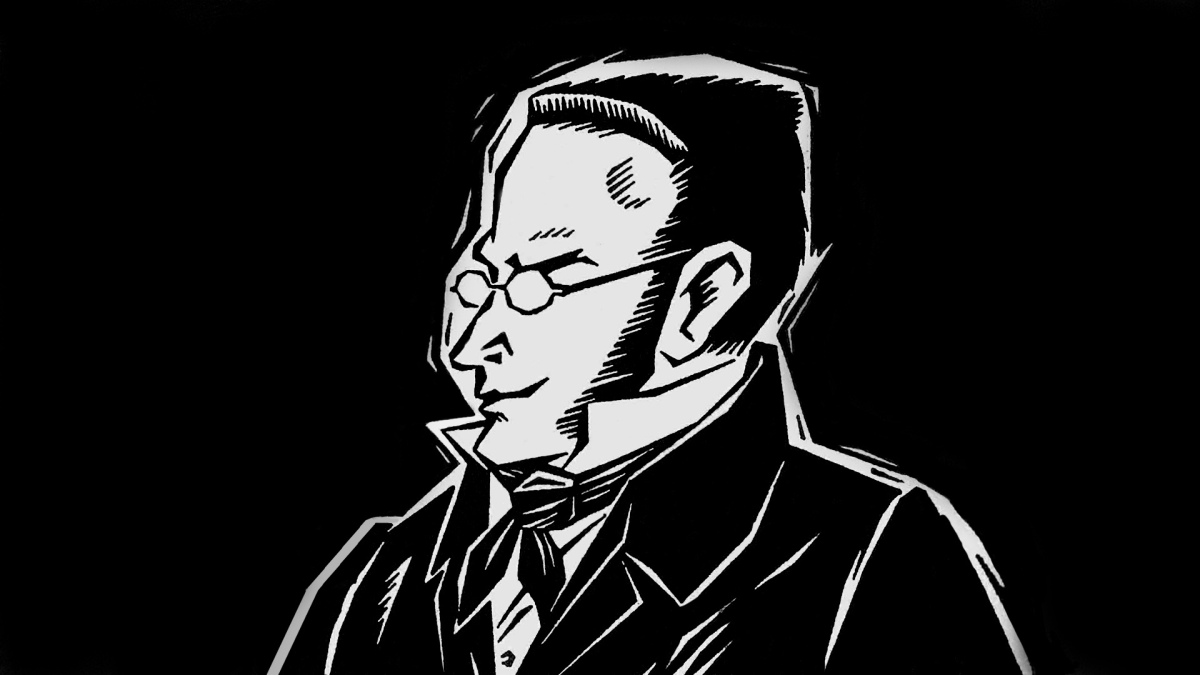Max Stirner’s Enduring Relevance

Max Stirner (1806–56) was one of the foremost protagonists of individualist anarchism. Stirner’s masterpiece from 1845 (the English translation from German of Der Einzige und sein Eigenthum is The Ego and His Own) forms an integral part of the canon of anarchist writings.
Anti-collectivism
Max Stirner’s ideas are relevant for our present day, when the tides of collectivist thinking are rising again. His philosophy provides a salutary antidote against collectivism of all sorts. As if he had foreseen the 20th century, Stirner’s discourse perceives the sort of battles that ravaged in the 20th century as the fights of collectivist ideologies to gain dominance over society by means of the state. Each of the collectivist movements promoted its own abstraction, with national socialism and communism as the most prominent, in the endeavor to justify a totalitarian system.
The remedy to collectivism is individualist anarchism. Karl Marx duly recognized the challenge to his collectivist socialism. Consequently, Marx’s critique of The Ego and His Own was even more ferocious than his critique of Proudhon’s mutualist anarchism.
As a strict nominalist, Max Stirner exposes the ghosts of abstractions, be they the family and the nation or equality and the state. Epistemologically, Stirner’s main argumentative thrust goes against the overblown abstractions people have elevated to the sanctities of the modern age, such as the state, democracy, equality, and humanity. These concepts, like the ghosts of the past, keep the modern mind captive in awe.
Reading Max Stirner is an act of liberation. Stirner’s biographer, John Henry Mackay, observed that The Ego and His Own is not a book you may only browse. It wants to be read deeply, but in steps:
“The book has to be put out of hand only to come back to it again and again when the excited thoughts have calmed down and the outraged feelings have cleared up. Yet with every new approach, the impression will be more lasting, Stirner’s magic will become more intense.”
Stirner diagnoses the end of the 18th century as the beginning of the “political epoch.” The swerve happened with the French Revolution, which promised liberty and equality yet resulted in political terror. The death of the old monarchical state did not free the individual. Rather, the democratic revolutions provoked the birth of politics and the worship of the state.
The State Is an Abstraction
Since then, the “idea of the state” has penetrated the hearts and minds of the people and aroused a new kind of enthusiasm: the national delirium. Serving the state as the new worldly god has become the new religion and the modern way of worship.
The observation of Stirner that the state and its mystification as a nation receive praise as the supreme ideal has remained valid. To serve the state as a civil servant, as a member of the military, and in the many other state functions is considered the highest honor. He reveals the dichotomy of the modern era in the contrast between the adulation of the state and the state’s unconcern about human individuality.
The Individual Is a Nothing to the State
Stirner writes:
“The state is not concerned with me and mine, but with itself.… The common good is not my benefit.”
(Direct quotations from Max Stirner are translated from the original German by the author of this article.)
The state cares only about itself: the individual is nothing but an incidental to the state.
“How does the common good take care of me? The common good as such is not my joy but demands the utmost self-denial from me. The common good does cheer loudly while I must struggle, the state does shine while I suffer.”
The state is the utmost generality and abstraction, while the individual person is the irreconcilable enemy of every generality. The meaning of the individual as a concrete person goes beyond the comprehension of the state. Because the state cannot understand the individual, it can do no good for a person’s individuality.
The purpose of the state rather is
“to restrict, subdivide, subordinate, subdue, and subjugate the individual.”
Politicians and Political Parties
The notable representatives of this modern world of the state are the politician and the political party. Stirner characterizes the politician as someone whose goal is to transmute the people and the world through the force and the violence of the state. Dominance over people is the aspiration of the political candidate, and the state apparatus serves the officeholder as his instrument. The larger and more effective the state, the better it serves as a means of oppression and control. The power of the state is universal to the politician, only comparable to God’s power.
The deep desire of every politician is the idea of an almighty state:
“The politician is and will remain for all eternity the one in which the state sits in his head or in his heart or in both, he is the state-possessed or the state-believer.”
Yet the political creatures suffer from profound delusions. The state is neither the most comprehensive nor the most effective means of controlling the individual. It is the man himself who stands above the state, the person who is his own. The state can take away liberty but not the ownership one has over oneself. When such a person revolts against the state, he uncovers the state’s power as a deceit.
Even if the politicians pretend to dominate and to govern, they are under the rule of their respective political parties. As party members, the politicians are necessarily in the bondage of a collective. To advance his career, the politician must accept the credo of his group, he must follow the rules of his party, and he must abide his party’s principles. These prerequisites turn him necessarily into a collectivist. The politician is always a party man.
Further,
“A political party, whatever its nature, can never be without a creed. The members of the family must believe in the principle of the party, they must not and need not question it; it must be the certain, undoubted thing for the party member. That means: one must belong to a party with body and soul, otherwise one is not truly a party man.”
Stirner points out that rational egoism is not the same as selfishness. It is not the individual egoist that is selfish, but the collectives, such as the nation, the family, the political party, and the state. While the egoism of the individual is limited through reason, the egoism of the collective is boundless selfishness.
While they themselves are harsh egoists, collectives demand unrestricted altruism from their members. To preserve its own identity, a collective entity will use unrestrained moral terrorism as a means of selfish self-possession. Collectives force their members to give up their individuality and their own interests and to sacrifice themselves in the name of an abstraction, for a ghost named the common good of a nation, a state, a political party, or a religious group.
Stirner exposes the collectives as brutal, egotistical monsters and depicts the state as the most vicious collective. The state is an institution that combines moral terror with physical violence. Thus there is an irresolvable conflict between the individual and the state. The state is the most dangerous of all collectives and therefore the greatest enemy of the individual because the state is the collective with legalized access to the use of force.
The modern state is the source of our wretchedness. Stirner points out that alienation is not the result of the division of labor. The misery of the modern man rather is the consequence of the self-submission of the individual to the state, man’s voluntary servitude.
The state is deception. The sycophants of the state promise justice, freedom, and equality and, in return, demand all authority to obtain the state power. By promulgating fantastic promises and fake assurances through the mouths of the politicians, the state takes everything from the individual and makes him powerless and despondent. Among the many falsehoods that the state and its partisans push, the pledge of equality is the greatest of all.
Not only that but,
“the state does not care about me and my own, but about oneself and one’s being: To the state, I am only its child, the ‘child of the land’, and nothing beyond at all for the state. My own as an ego is something accidental to the mind of the state: my wealth as well as my impoverishment. I am a mere coincidence to the state with all that is mine. This proves that the state cannot understand me: I go beyond its conceptions. The state’s mind is too short to grasp me. That is why the state can do nothing for me.”
Individualist Anarchism
Max Stirner’s individualist anarchism is a way to overcome the horrors of the modern state. He envisions a “union of rational egoists” and a society that does not need a ruler. The community of rational egoists is a universal commercial society. In fact, “the more a society is based on voluntary exchange, the less right it is and thus the less effective the force.”
Individualist anarchism carries its purpose in itself and does not serve a higher end. The rational egoist will respect the rights of others because he respects himself. He will not be violent, because he does not want to be attacked. This attitude of the individual anarchist stands in sharp contrast to the destructive role of the collectivist entities. Individual egoism is the answer to the egoism of the collectives.
“My cause is neither the divine nor the human, is not the true, the good, the right, the free, etc., but only mine, and it is not universal, but is — unique, like me as I am only I. Nothing goes beyond me and myself!”
The more a society is based on voluntary exchange, the fewer laws are required and the lesser the use of force. Unlike selfish collectives, which drive a wedge into the community of human beings, individualistic anarchism does not split the society but unites people.
Stirner believes neither in revolution nor reform. His recipe is exit. How does the state end?, Stirner asks, and his answer is that the state ends by the exit of the individual:
“All states, constitutions, churches and so on perished from the exit of the individual. Because the individual is the irreconcilable enemy of all generalities, of all bonds, and of all fetters.”
Our present time is still shaped by collectivism through state and politics. As the church has lost its influence, the state has advanced even more, interfering in the affairs of the individual without restraint. The individual is surrounded by politics and constantly threatened by the interventions of state power.
Collectivism left horrifying stains on the 20th century. With the new technologies of supervision and control now available, the dominance of collectivist beliefs in the new century would be outright devastating. It is time to ban the curse of collectivism. We need an individualist turn in philosophy and politics and must abandon the mystical beliefs in false abstractions. To this end, Max Stirner is the indispensable guide.










